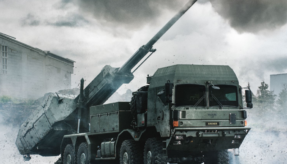
NATO Cyber Security Centre experiments with secure network capable of withstanding attack by quantum computers.
Scientists have predicted that quantum computers will one day be able to break some commonly used encryption methods.
That’s why NATO and Allies are already testing post-quantum solutions.
The NATO Cyber Security Centre (NCSC) has successfully tested secure communication flows in a post-quantum world using a Virtual Private Network (VPN) provided by the United Kingdom-based company Post-Quantum. The NATO Cyber Security Centre, which is run by the NATO Communications and Information Agency (NCI Agency), protects NATO networks 24 hours a day, seven days a week.
Post-Quantum provides different algorithms to ensure security, even when facing attackers using quantum computing. A VPN can use these algorithms to secure communications, ensuring that only the correct recipient can read the data. Such software is increasingly relied upon to protect remote connections when working from outside of traditional office environments, but also can be used in ensuring secure communications between mission partners in an operational environment.
Konrad Wrona, Principal Scientist, NATO Cyber Security Centre, commented: “Securing NATO’s communications for the quantum era is paramount to our ability to operate effectively without fear of interception. With the threat of ‘harvest now and decrypt later’ looming over secure communications, this is an increasingly important effort to protect against current and future threats.”
Post-Quantum is a ‘Hybrid Post-Quantum VPN,’ in that it combines both new post-quantum and traditional encryption algorithms. As it will take many years for the world to completely migrate to a quantum-safe future, it is more realistic to combine these new algorithms with better understood traditional encryption in order to ensure interoperability. The Post-Quantum solution was proposed to the Internet Engineering Task Force (IETF) for open standardisation.
This project was financed by Allied Command Transformation’s VISTA (Versatile Innovation through Science & Technology Applications) framework which aims to utilise the knowledge and research done by NATO enterprise, Nations, academia and industry in order to enable science and technology for accelerated warfare development.
Andersen Cheng, CEO, Post-Quantum, said: “Over ten years of deep R&D means we are well placed to engineer real-world quantum-safe solutions. This project with NATO is an important milestone in the world’s migration to a quantum-safe ecosystem. Organisations would be wise to take action now.”
If you would like to join our community and read more articles like this then please click here







